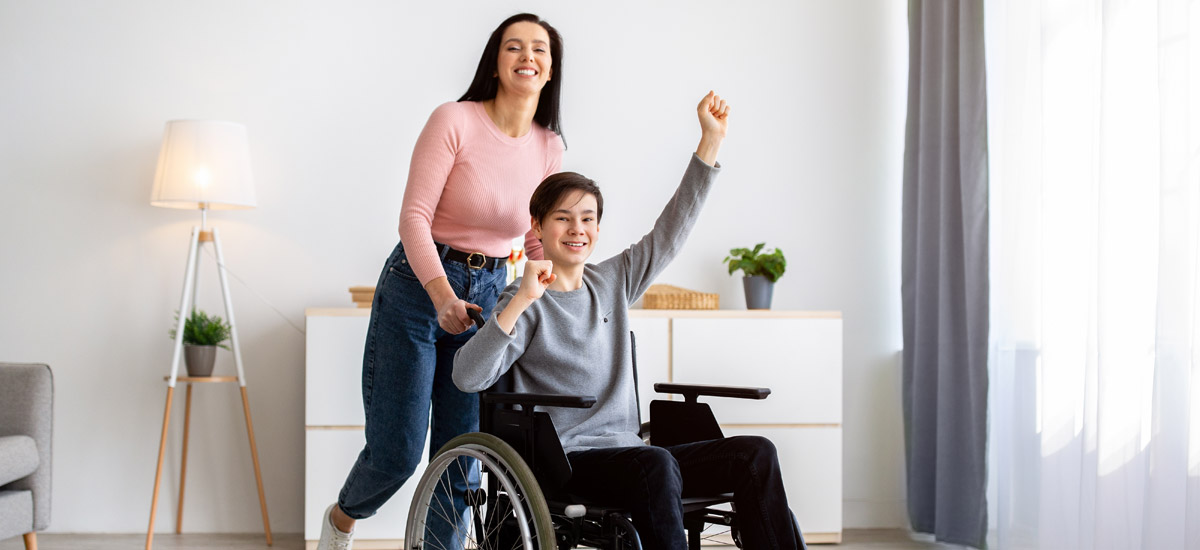Accommodation categorised as Specialist Disability Accommodation (SDA) is intended for those with significant and long-term disabilities. These accommodations are designed to encourage independence, safety, and inclusivity and are constructed or altered to suit the unique needs of the people residing there.
The National Disability Insurance Scheme (NDIS) offers funds to eligible participants to access SDA SDA. A nationwide program called the NDIS helps people with disabilities live independently and engage in their communities by offering financial support and other resources.
Specialised bathrooms, kitchens, and bedrooms, as well as amenities like wheelchair ramps, hoists, and other assistive technologies to help with mobility, are all included in SDA homes, which are made to match each person’s specific needs. They could also have features like alarms and security systems for the occupants’ safety and wellbeing.
SDA homes can be single-family residences or group dwellings. Individual houses are stand-alone residences created especially for a single person or family, and group homes are communal living areas where participants live side by side with the assistance of caregivers.
One of the key benefits of SDA is that it gives people with disabilities the option to live in a house specially made to suit their needs instead of a standard house that might not be accessible for them. Their quality of life can be significantly enhanced, supporting their ability to live independently and actively engage in their communities.
SDA Rules
The specific design specifications for newly constructed SDA seeking enrolment under the NDIS are outlined in the Specialist Disability Accommodation (SDA) Design Standard. According to the SDA Rules, there are four categories of SDA design for this standard:
- Improved Liveability,
- Fully Accessible,
- High Physical Support, and
- Robust.
SDA Design Standard
The SDA Design Standard increases provider trust, compliance, and clarity around design
criteria by providing:
Participants can access top-notch housing options, and providers are flexible enough to accommodate their requirements and preferences. Information on how to construct homes for those with disabilities should be shared with architects, builders, and the community.
On July 1, 2021, the SDA Design Standard went into force. An SDA design standard certification from a recognised independent third-party NDIS specialist disability accommodation assessor must be included with all enrollment applications. Participants applying to be enrolled as legacy or existing SDA are exempt from the SDA Design Standard.
The timeline and prerequisites for the complete implementation of the SDA design standard are outlined in the SDA Design Standard implementation plan.
Benefits of SDA for Individuals with Disabilities
SDA accommodation is built with full accessibility in mind. They are equipped with adapted bathrooms, kitchens, bedrooms, and features like hoists, wheelchair ramps, and other assistive equipment to help with mobility. This guarantees safe and easy mobility throughout the house for participants.
The degree of protection and safety offered by SDA is another advantage. Alarms and security systems are examples of amenities that SDA homes may include to guarantee the safety and well-being of their occupants.
Additionally, SDA houses offer psychological and social advantages. Living in group homes gives participants the chance to live in the community, encouraging them to socialise and meet their developmental goals. This can be helpful and a great way to instill a feeling of belonging and help them live independently.
To sum up, SDA provides many advantages to NDIS participants, such as the chance to live in a house tailored to their needs, increased safety, and the chance to share the same space with others in the journey. These advantages can significantly enhance the lives of participants, enable them to live independently, and support them to engage in their communities.
Challenges of Securing Specialist Disability Accommodation
For people with impairments and their families, locating and obtaining NDIS specialist disability accommodation (SDA) can be difficult. Finding and securing appropriate SDA might be challenging for a variety of reasons.
The restricted supply of SDA is one significant obstacle. SDA homes are in low availability in many locations, and demand for them is frequently higher than availability. This might make it challenging for people with disabilities to locate a home that meets their needs and is convenient for them and their families.
Role of Carers in Specialist Disability Accommodation
For people with disabilities living in SDA to be able to live their lives to the fullest, caregivers and support staff are essential.
Individuals with disabilities living in SDA are offered a wide range of services by caregivers and support personnel. Depending on the participant’s needs, they offer assistance with medical care and dispensing medication and simpler ones like clothing, grooming, and maintaining personal cleanliness. Additionally, they offer social and emotional support to people with disabilities, enabling them to engage in the community and preserve their relationships with friends and family.
Takeaway
Understanding Specialist Disability Accommodation (SDA) is essential to creating inclusive living spaces because it plays a critical role in providing specialised living solutions for people with disabilities. SDA-friendly housing promotes independence, accessibility, and support, all of which contribute to an environment that is inclusive and empowering for everyone.

